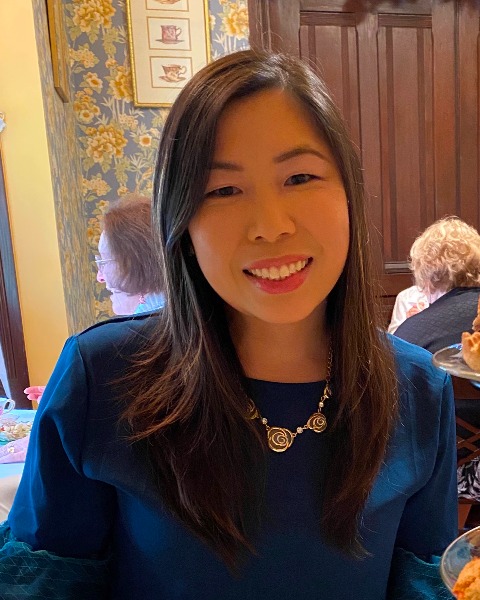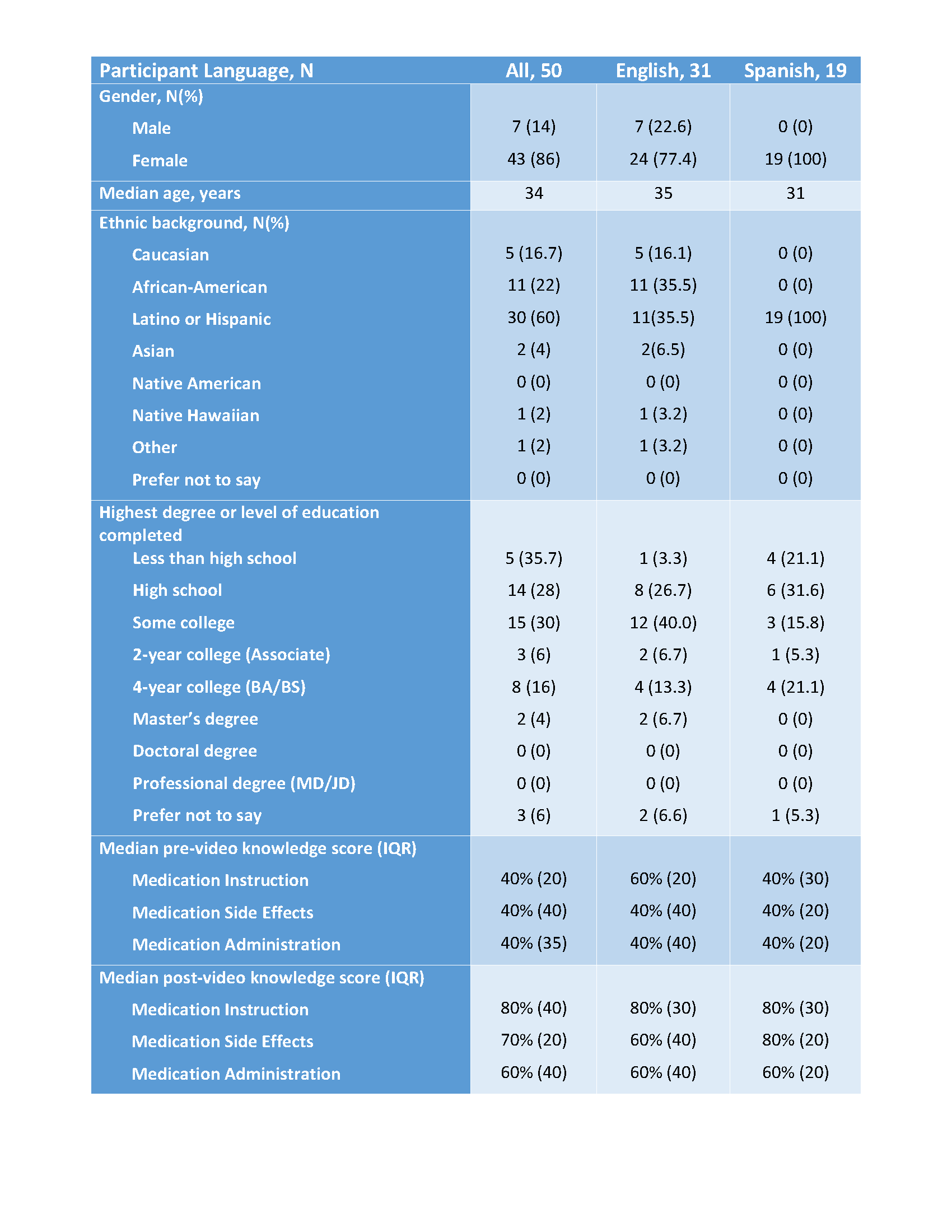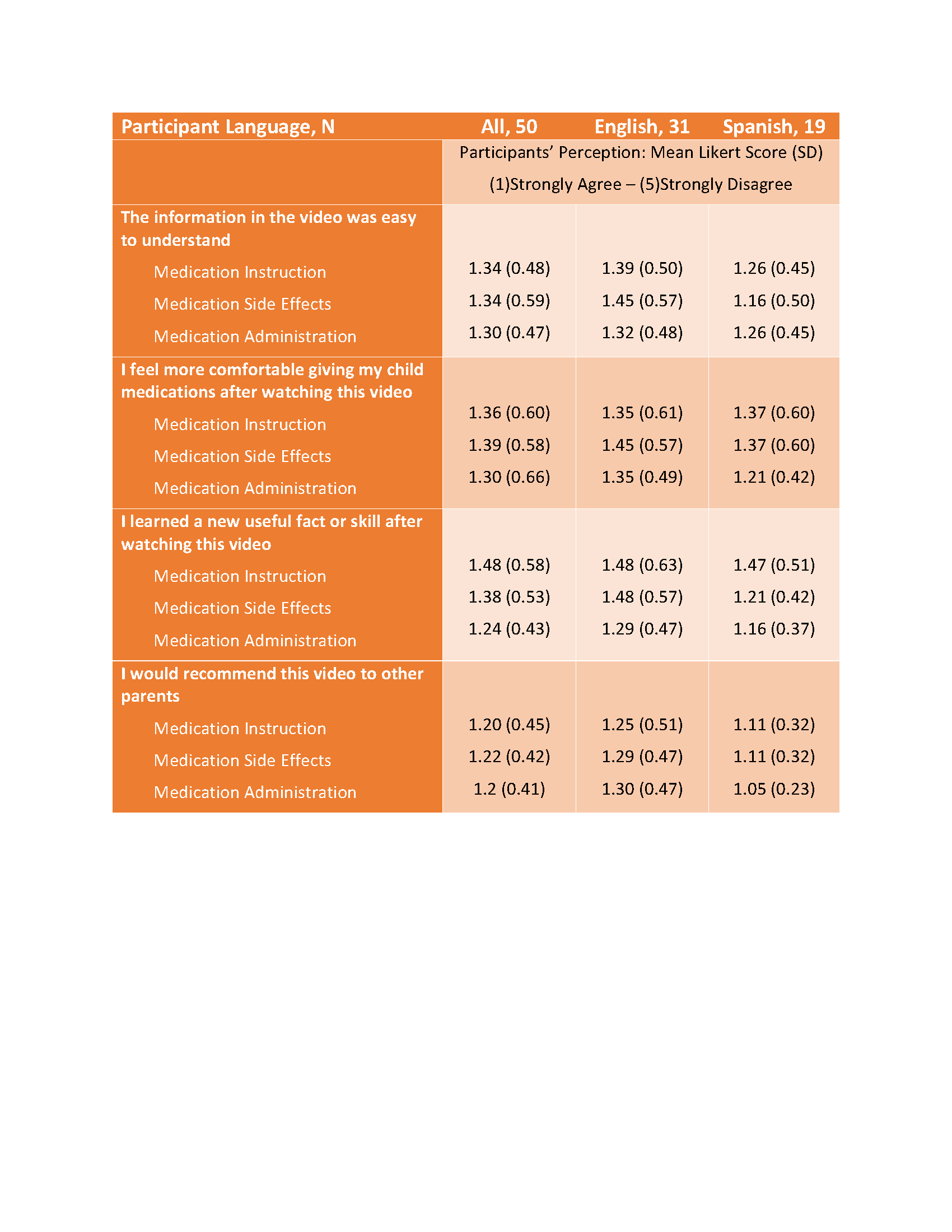General Pediatrics
Session: General Pediatrics 3
347 - My Child’s Medication: Video-Based Medication Resource
Saturday, May 4, 2024
3:30 PM - 6:00 PM ET
Poster Number: 347
Publication Number: 347.1466
Publication Number: 347.1466

Tiranun Rungvivatjarus, MD (she/her/hers)
Assistant Clinical Professor
University of California San Diego/Rady Children's Hospital
San Diego, California, United States
Presenting Author(s)
Background: Medication errors and adverse drug events are common in the pediatric population. Parents with lower health literacy levels have less knowledge about preventive health behaviors and health services. Thus, children of these parents have been shown to have higher hospitalization rates, ED visits, and worse health outcomes. Efforts to improve understanding of medication management may help to decrease these costly and adverse events.
Objective: To create 3 video-based medication education resources for families living in underserved areas of San Diego (SD) and assess parents’ comprehension, utility, value, and satisfaction.
Design/Methods: Based on our prior parent focus group study, we selected 3 medication topics that parents were most concerned with: (1) medication administration techniques, (2) side effects of commonly prescribed and over-the-counter pediatric medications and (3) understanding medication instructions. We utilized customer-driven iterative design process to create the desired educational materials. Parents were recruited from our community partner sites (Copley-Price YMCA, El Cajon Pediatric Clinic, and Metro Villas Complex) located in one of the most underserved communities in SD County. We created 3 prototype educational videos based on a team of medical experts (pharmacist, child life specialist, nurses, pediatricians, and health literacy experts). We then conducted iterative focus groups (2 rounds) and edited the videos based on parents’ feedback . After videos were finalized, we recruited parents to complete pre- and post- video surveys assessing information on the utility of these educational materials and content comprehension.
Results: Nine English- and 10 Spanish-speaking parents were recruited for educational video feedback focus groups. We collected 31 surveys from English-speaking parents, and 19 surveys from Spanish-speaking parents. Median post-video knowledge score statistically increased from pre-video knowledge score across all 3 videos (p ≤ 0.001, paired-T test). Across all 3 videos, parents expressed that videos were easy to understand, that they felt more comfortable giving medications to their child, that they learned a new useful fact/skill, and that they would recommend this video to other parents.
Conclusion(s): We successfully utilized customer-driven iterative design process to create pediatric medication education resources that parents comprehend and find useful in their medication management. Our future steps are to expand the number of languages our videos are available in and to track view counts as the videos are disseminated in the community.
.png)


